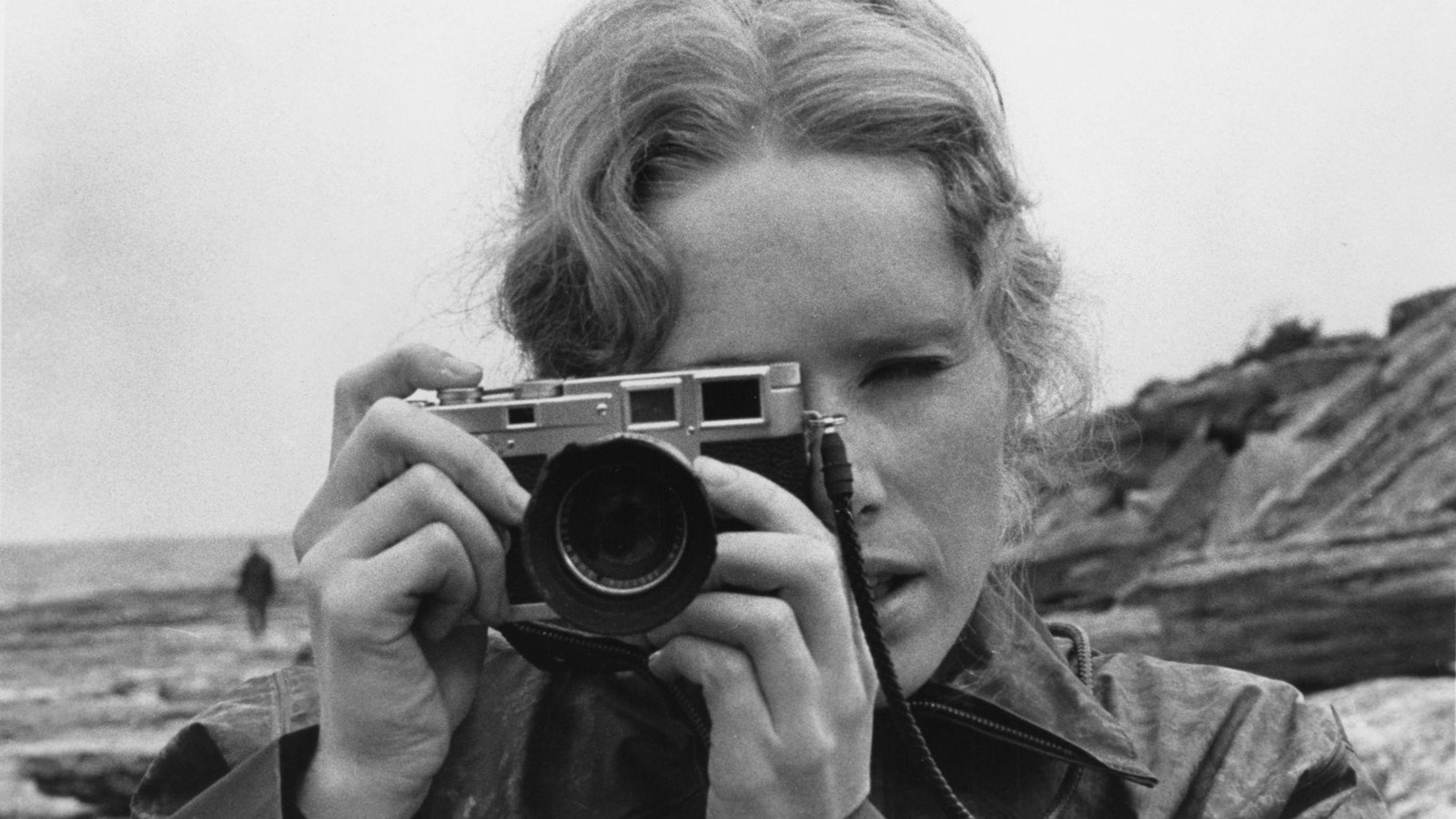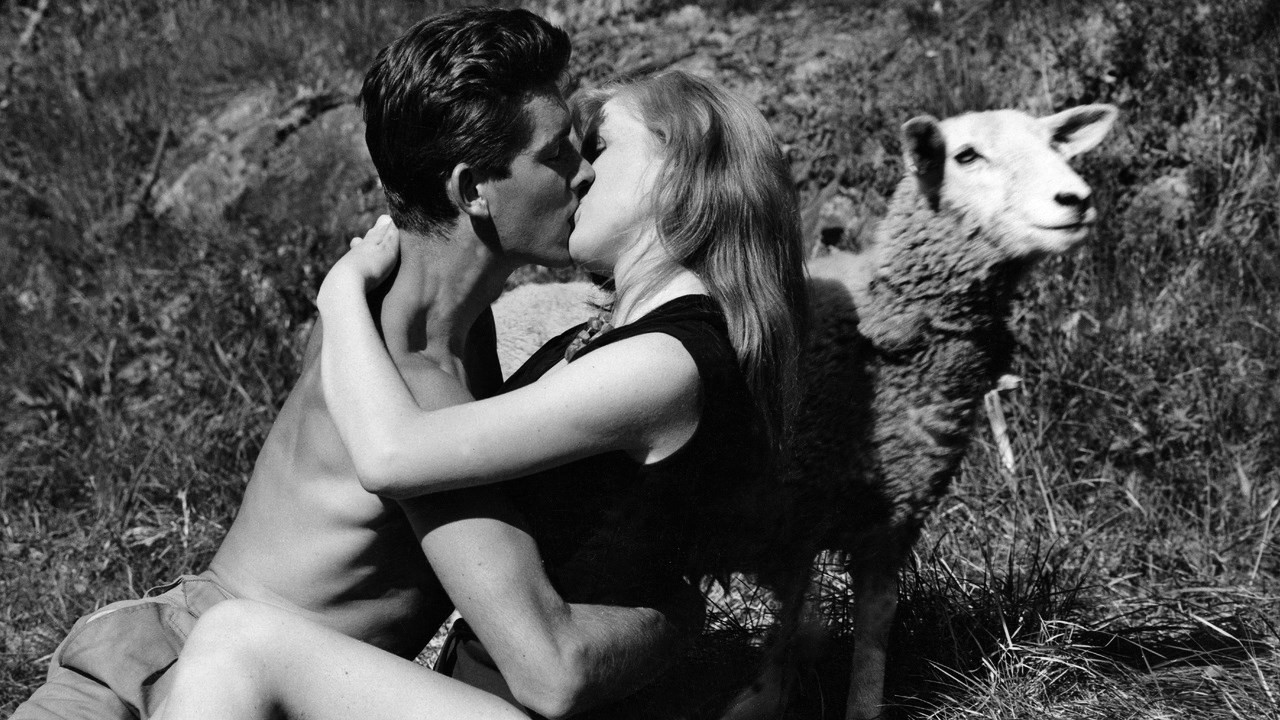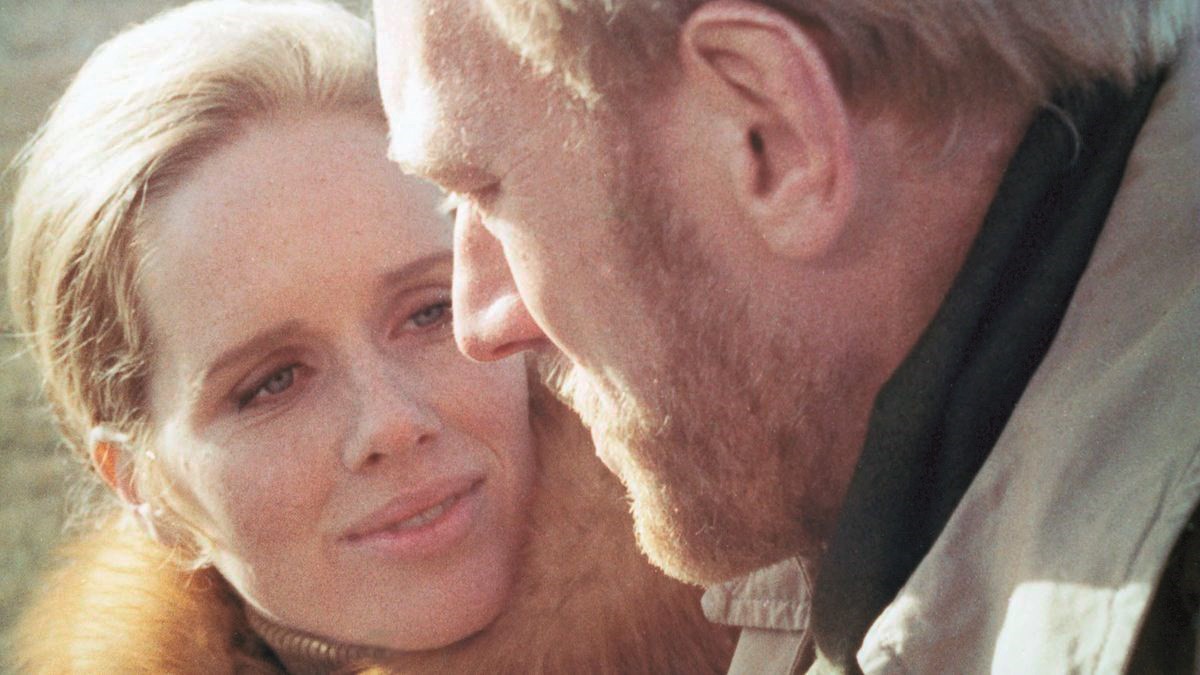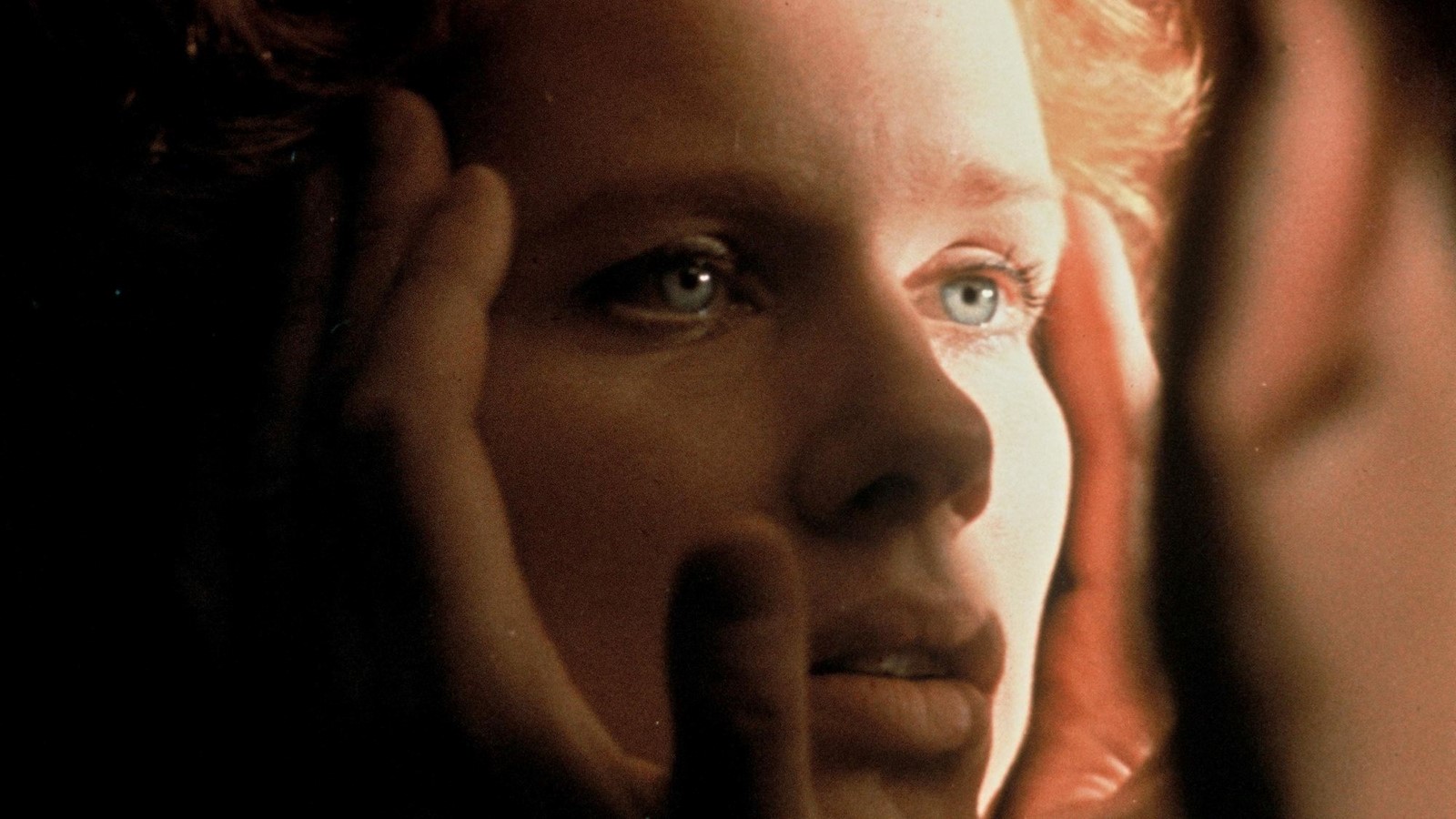It’s impossible to think of Liv Ullman without also thinking of Ingmar Bergman, her one-time lover (and father of her daughter, Linn), longtime collaborator and lifelong friend, whom she refers to tenderly as her “kindred spirit”. The prolific Swedish auteur made over 50 films, each as gripping, philosophical and emotionally wrought as the next, underscored by a modernist experimentalism. But arguably, many of his most accomplished works were made after meeting Ullmann, when the Norwegian actress was just 25 and the already esteemed Bergman was 47. Ullmann featured in every one of his films (bar one) thereafter, starting with Persona, which saw her skyrocket to fame as a troubled actress who decides to stop speaking.
Other remarkable performances for Bergman ensued: from the guilt-wracked Maria, caring for her terminally ill sister in Cries and Whispers (1972); to Marianne, the betrayed wife, in Scenes from a Marriage (1974) and Saraband (2003). In each, Ullmann demonstrated her capacity for encapsulating the spectrum and depth of human emotion. “Ingmar always showed me such trust, which was good because I didn’t always think highly of myself,” she says, speaking over the phone from Florida just days after receiving an Honorary Oscar Award. “I thought, ‘How could he show somebody such trust if I’m not OK!’”
Ullmann has shone just as brightly outside of her collaborations with Bergman, too. In countless other roles including that of Kristina, a Swedish immigrant, in Jan Troell’s The Emigrants and The New Land; as a director of films including Private Confessions (1996) and Faithless (2000), both written by Bergman, and an adaptation of Strindberg’s Miss Julie (2014), which she wrote herself; and as a writer of two memoirs. Here, to coincide with a special season at the BFI honouring her brilliant career, Ullman, still shy and amazingly humble at 83, discusses some of her highlights and the lessons she’s learned along the way.

Daisy Woodward: What do you think it is about your personality that drew you to acting?
Liv Ullman: I don’t know that it has so much to do with personality. I think it is what you choose to do in life, and very early I wanted to be an actor because I loved watching movies and watching actors. I loved the theatre, being part of it – sitting in the stillness of the theatre and having this bridge between the stage and me. I was pretty young when I started, and I had such tremendous luck that I met wonderful people, first in theatres and then in film companies, who taught me and enriched me. And before I knew it, I was in Sweden, England, the United States, Australia, and so on. It’s not a personality thing, it’s just what I wanted to do.
DW: The Wayward Girl, your first film is part of the BFI retrospective. What was making that like – you were so young, and not very wayward from what I’ve read, although you played the titular role?
LU: No, I didn’t know very much about being a wayward girl. I was only 18 and had just done a few dramas on the stage. Edith [Carlmar] even asked me, very quietly, “Do you know anything? Maybe you’re a virgin?” And actually I was. But I got the part. Edith was one of my teachers, she was a wonderful director. It was very far from my own personality, but it was incredible to allow something to grow inside of me, to come through me, which I knew nothing about. With a good cast and a good script, suddenly I belonged to that world in the film.
DW: Did it make a difference that your first film was made by a woman director?
LU: I had already acted with a female director in the theatre, for my debut, a very different part – I played Anne Frank. So for my first theatre and my first film experience, the directors were women. That was good because I was very shy – I never really talked unless I was spoken to, and I got these two very different parts. In The Wayward Girl, my character was very open about her sexuality, and I had a very strong woman director, who sat down with me and told me what it feels like, in your hand, when somebody gives you money for you to give them your body. Suddenly Liv, who was only 18 at that time, understood.

DW: That speaks a lot to Carlmar as a director …
LU: You know, young women and grown women, when we sit together, we suddenly have a language of touch, and caring and understanding. This is the first time I’ve thought about it … I wonder if my whole career would have looked different if I had worked with male directors on these projects, who’d explained it in a man’s way. Maybe at 17, 18 years old I’d have had difficulty understanding everything.
DW: Were you still just as shy when you first met Ingmar Bergman, and he approached you for the role in Persona?
LU: I was still shy. I’m very shy today. That’s who I am. I used to say that there’s a young girl in me who will not die, and that’s the shy one. I was 25. I had worked a lot, done several films and a lot of dramas on the stage. I was visiting Bibi Andersson in Sweden – we’d done a movie together – and we were walking in the street and then Ingmar came. I didn’t say anything. I was red, thinking “that’s Ingmar Bergman”. He talked to Bibi and then he looked at me and said “I’ve heard about you.” Then he suddenly said, “Would you like to be in a movie I’m doing?” Of course, he didn’t have a movie at that time – he didn’t know me – but he got the idea seeing Bibi and me together, the likeness we had, and the love we have as two different actresses from two different countries – she’s Swedish, I’m Norwegian.
DW: And so he wrote the film for you?
LU: He did what he would do later, too – he pretended he was sick so the movie he was lined up to do was cancelled. Then, while he was so-called sick in the hospital, he had the idea for Persona after looking at lots of pictures of me and Bibi. He was 21 years older than me and in a crisis in his life, whereas I was just starting out in life, but he felt that there was some kind of understanding without words, that I could play this woman who could give expression to what he was feeling – “I don’t want to talk anymore, I feel people are lying, I want to shut myself away from life.” We shot Persona on an island, where he would later build a house and we would live together for five years. Just before we decided to do that, he said, “You and I, we are painfully connected.” And when we didn’t live together anymore, we were still so connected – we loved each other and worked together until he died.
“He [Ingmar Bergman] was 21 years older than me and in a crisis in his life, whereas I was just starting out in life, but he felt that there was some kind of understanding without words, that I could play this woman who could give expression to what he was feeling” – Liv Ullmann
DW: Bergman was famous for his close-ups, and you are famous for delivering wonderful performances under that level of scrutiny. Do you have a favourite close-up scene you shot?
LU: I really understood Ingmar’s scripts and, like all good directors, he allowed you to find it within yourself. He didn’t tell you what you should feel or what you should think. But in this long close-up scene in The Passion of Anna, a monologue about a crash in which my character’s son and husband die, he told me my character was really a murderer and I really disagreed with him. He said “OK, you’re the actress!” but he gave me one direction – to take a little pause during the monologue before I started talking about the accident. We started shooting and during the pause, he said from his seat, “I’m going to leave you, I’m not going to live with you anymore and I want to take my son.” Then, as I started speaking, I grew desperate, she grew desperate, and I felt this sense of anger – I was left forever, nobody loved me – which became part of this murderous instinct. And when I finished the monologue, I knew Ingmar had been right.
DW: Wow. So that was your favourite close-up.
LU: Well, another unforgettable moment was working with the director Jan Troell on The Emigrants and The New Land. At the end, my character is lying in bed, dying. My husband is sitting with me – we had had children together, escaped our country, come to a new land and made a new life. Sitting there, my husband [played by Max von Sydow], says “You and I, we are the best of friends.” And suddenly that was the most beautiful thing anyone had ever said to me. I wished it was me – it was a little me. I really personalised this, wishing there was just one man, who in my last days would say, “You and I are the best of friends.” In that moment, it was Liv dying too. It felt real.
DW: Do you feel that your acting got better, the more life experience you had?
LU: It never went in a linear way, also because I became occupied with other things: writing, making speeches, directing. I was sometimes a little ashamed to be an actor, because I came from a very religious family. But the first time I directed, for this segment I had written in a film called Love, I said “camera” to this actress who was playing a fantastic part and I thought, “I know how I would do this if it was me.” And then suddenly, when the camera was rolling, she talked about love in a way that I would never have thought to, and for the first time I really experienced how much an actor puts into a part. That’s when I really felt proud to be an actress, through looking at somebody else.

DW: You are often asked about what you learned from Ingmar, but your relationship was very much two-sided. You inspired, and through your acting, shaped so much of his work. So I was wondering what you think Ingmar learned from you?
LU: Well I was in every movie he made after we met, except for Fanny and Alexander, which I said no to – he was very angry about that. We didn’t speak for a year and then we saw the picture together. So I do know that the movies we made together were also partly me. When I got this Oscar award, John Lithgow made a beautiful speech and said what you said: “Ingmar is a genius who made all these movies, but the question is, ‘What would he have been without Liv?’” I liked that and everybody applauded, and that was really nice. But you know what, ‘What would his last eleven films have looked like without me?’ So I can take credit for that, I think.
Liv Ullmann: Face to Face is at BFI Southbank until April 30. Cries and Whispers is re-released in selected cinemas from April 1 and on BFI Player from April 11, and Faithless is released on BFI Blu-ray on and available on BFI Player from April 11.
